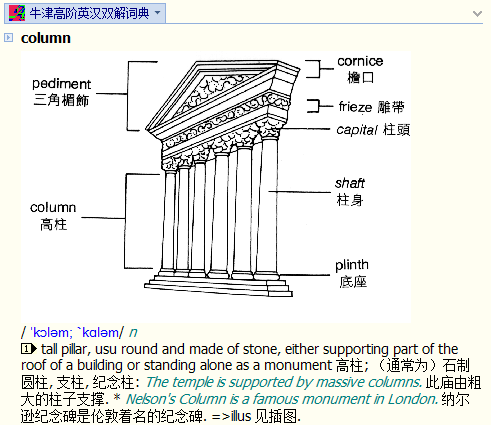colony
In biology, a colony is a group of individual organisms of the same species living closely together.
- 殖:1. 孳生;2. 种植;3. 兴生财利。
- 货殖列传出自史记。
- 殖民指强国向它所征服的地区移民,并掠夺原当地人民的利益。现指资本主义国家把经济政治势力扩张到不发达的国家或地区,掠夺和奴役当地的人民。
In political science, a colony is a territory subject to a form of foreign rule. Though dominated by the foreign colonizers, colonies remain separate from the administration of the original country of the colonizers, the metropolitan state (or "mother country"). This administrative colonial separation makes colonies neither incorporated territories, nor client states [附庸国]. Some colonies have been organized either as dependent territories that are not sufficiently self-governed, or as self-governed colonies controlled by colonial settlers.
The concept of a colony is derived from the ancient Roman colonia, which in turn was based on the apoikia (Ancient Greek: ἀποικία, lit. [literally] 'home away from home'), referring originally to territories (usually relatively small urban areas) settled by ancient Greek city-states. The city that founded such a colony became known as its metropolis ("mother-city").
Since early-modern times [1500~1900] historians, administrators and political scientists generally use the term "colony" to refer mainly to the many different overseas territories of particularly European states between the 15th and 20th century CE [Common Era =AD], with colonialism and decolonization as corresponding phenomena.
The word "colony" comes from the Latin word colōnia, used as concept for Roman military bases and eventually cities. This in turn derives from the word colōnus, which was a Roman tenant farmer. 和前文不矛盾,罗马从希腊抄了很多。
The terminology is taken from architectural analogy, where a column pillar [柱子] is beneath the (often stylized) head capital [柱顶], which is also a biological analog of the body as subservient beneath the controlling head (with 'capital' coming from the Latin word caput, meaning 'head'). So colonies are not independently self-controlled, but rather are controlled from a separate entity that serves the capital function.
Roman colonies first appeared when the Romans conquered neighbouring Italic peoples. These were small farming settlements that appeared when the Romans had subdued an enemy in war. Though a colony could take many forms, as a trade outpost or a military base in enemy territory, such have not been inherently colonies. Its original definition as a settlement created by people migrating from a central region to an outlying one became the modern definition.
Settlements that began as Roman colonia include cities from Cologne [德国科隆] (which retains this history in its name), Belgrade [贝尔格莱德] to York. A tell-tale sign of a settlement within the Roman sphere of influence once being a Roman colony is a city centre with a grid pattern.
- Perfectly placed half-way between London and Edinburgh and with the glorious Yorkshire Dales [约克郡山谷], North York Moors and Wolds [沼泽和山地] right on the doorstep, York is unlike any other English city.
- wolds /wəuldz/ n [plural] BrE a word for an area of hilly countryside, especially used in the names of places
- Something that is described as tell-tale gives away information ……亮了
- 市中心呈网格状的罗马殖民地——周边和郊区网格不网格管不了。
六级/考研单词: biology, colony, organism, territory, dominate, administer, metropolitan, suffice, derive, era, correspond, militant, tenant, analogy, pillar, seldom, entity, conquer, inherent, migrate, sphere, grid





 浙公网安备 33010602011771号
浙公网安备 33010602011771号